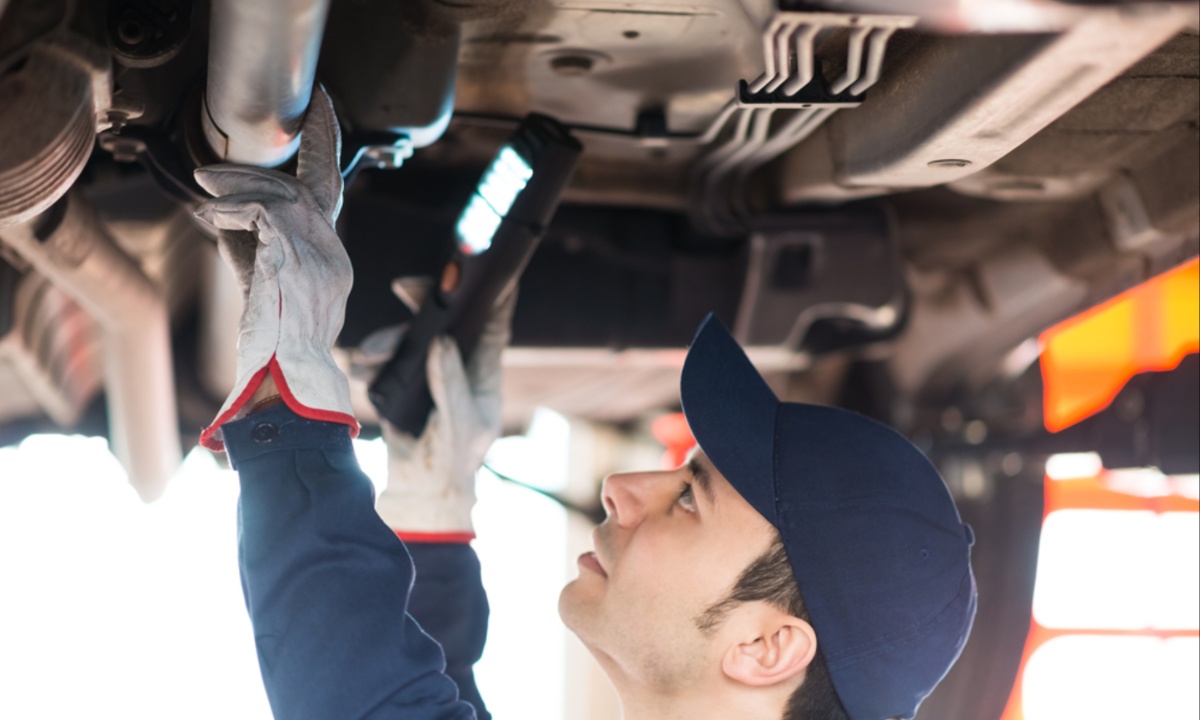Modern cars are built to last, and many can easily reach 200,000 miles or more. However, even with regular maintenance, issues like transmission failure can still arise. A vehicle’s transmission is essential for smooth gear shifting and efficient power delivery. If your car starts showing signs of transmission trouble, it’s crucial to address the issue early to avoid costly repairs. Here are seven key signs that may indicate your car’s transmission is experiencing problems.
Clunking Sounds
Unusual sounds, such as buzzing, humming, or clunking, are often early warning signs of transmission issues. If you hear these noises, it’s a good idea to have your transmission inspected. One particular clunking sound occurs when your car shifts between gears. If the transition isn’t smooth and instead results in a thudding or a jarring motion, this indicates a potential transmission problem that should be addressed to avoid further damage.
Burning Smell
A burning smell from your car, especially when you haven’t been engaging in any extreme driving, is a sign of trouble. This odor often signals that the transmission fluid is overheating, which can lead to further transmission damage if not resolved. While you don’t need to panic, it’s essential to have your vehicle checked to ensure the fluid levels and system are functioning correctly.

Gears Are Grinding
Grinding gears can be a sign of different issues, depending on whether you drive a manual or automatic vehicle. For manual cars, this often indicates a worn-out clutch, which needs replacement due to wear and tear. In automatic cars, rough shifting could mean misaligned synchronizers or other transmission-related issues. A mechanic will need to inspect and diagnose the cause to determine whether simple repairs or more extensive work is required.
No Response or Slow Response
If you notice a delay when shifting gears or if the car doesn’t immediately accelerate when you release the brake, your transmission might be struggling. This lack of responsiveness can be particularly noticeable when shifting from park to drive. A slow or absent response could indicate that the transmission fluid is low, or there may be a more serious issue requiring attention from a mechanic.
Fluids Are Leaking
If you find a puddle of liquid under your car, it’s important to investigate whether the leak is related to the transmission. While coolant or water from the air conditioning may not be a major concern, red or brown fluid is typically a sign of a transmission fluid leak. Since the transmission operates within a closed system, any fluid leakage should be addressed immediately to avoid causing further damage to the system.
There’s a Light On
The appearance of a warning light on your dashboard, such as the engine service light, is one of the most obvious signs that your vehicle needs attention. While this light doesn’t always indicate a transmission issue, it signals that something in your car needs to be checked. A mechanic can connect your car to diagnostic software, retrieve the error code, and pinpoint the issue. Addressing this light early can prevent costly repairs in the future.

Neutral Is Noisy
When you place your car in neutral, it should run quietly. If you hear unusual noises, such as bumping or grinding, it could be a sign of transmission trouble. Sometimes, simply changing the transmission fluid can resolve the issue. However, if the noise persists after this change, you should consult a mechanic for a thorough inspection to determine the root cause of the noise and get it fixed.
What to Expect When Getting It Fixed
Transmission repairs can vary widely in cost, depending on the nature and severity of the problem. Minor issues like a defective solenoid may cost around $150 to fix, while more significant repairs, such as a complete transmission replacement, can reach $2,500 or more. The best way to determine the extent of the issue and the cost of repairs is to bring your car in for an inspection. Ignoring the problem may result in more damage and higher repair costs later on.
If you’ve noticed any of the signs mentioned above, it’s likely that your vehicle is dealing with transmission issues. Early diagnosis and repair are crucial in preventing the problem from escalating. Professional mechanics can accurately diagnose the issue and suggest the best solution, saving you money by avoiding unnecessary repairs. If you suspect transmission problems, don’t wait—get your car checked to avoid more serious and expensive issues.

